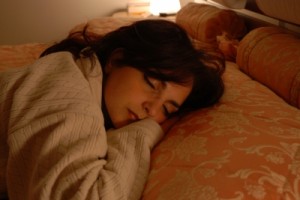
Adults who wet the bed may feel like they are alone in their struggle to wake up dry, but that simply isn’t true. In fact, adult bedwetting affects between one and two percent of Americans, whether due to genetics, physiological causes, or illness. Read on to learn more about this very common condition.
Adult Bedwetting
Known as nocturnal enuresis, bedwetting is not unusual in children and some teenagers. Some people simply do not “grow out of it,” continuing to wet the bed as adults. Some adults may find that they experience bedwetting only occasionally, while for others it occurs almost every night. The frequency varies based on the person.
Causes of Adult Bedwetting
The cause of adult bedwetting depends on whether the person has consistently wet the bed since childhood, known as primary nocturnal enuresis, or if he has only recently begun to wet the bed, known as secondary nocturnal enuresis.
Primary noctural enuresis
Determining the cause of primary bedwetting in adults is difficult. In some cases, it may be the result of a strong genetic predisposition. If someone has two parents who wet the bed, he or she is 77% more likely to wet the bed as an adult. In other cases, adult bedwetting may be caused by a deficiency in levels of ADH, the hormone that slows production of urine at night. Without this hormone, too much urine is produced, potentially resulting in adult bedwetting. Adult bedwetting may also be related to bladder size and muscle tone: small bladders, weak bladders, or bladders prone to muscle spasms can cause enuresis.
Secondary nocturnal enuresis
For people who experience adult bedwetting suddenly, with no history of enuresis after childhood, the causes may be very different. Some medications, like sleep aids and antipsychotics, can affect sleep quality and cause adult bedwetting. In other cases, it may be a result of prostate or bladder problems that do not allow sufficient control over urination. Adults who begin wetting the bed should check their diet for excessive amounts of bladder irritants like caffeine and sugar, as these can also cause enuresis. However, bedwetting can also occur because of major health problems like diabetes and cancer. Anyone wetting the bed should speak to a doctor to make sure that their adult bedwetting isn’t due to a serious health issue.
Treatment for Adult Bedwetting
How is bedwetting in adults treated? The answer depends on the cause. Possibilities include exercises to improve bladder muscle tone, medication to increase hormone levels, changing other medications, or even surgery. In some cases, bedwetting in adults can be treated with the same techniques used to treat bedwetting at younger ages, like bedwetting alarms. Unfortunately, some adults never stop wetting the bed, and they must simply learn to manage it.
Adult bedwetting is nothing to be ashamed of, and it is more common than many people think. If you are experiencing problems with bedwetting, talk to your doctor about treatments that may be available.
Nocturnal Enuresis in Adults
There are solutions to confront nocturnal enuresis in adults and just because you happen to be an adult who wets the bed, it doesn’t have to continue. Nocturnal enuresis in adults impacts many people, who seek out each others support through online forums and other support groups. Many people trying to cure nocturnal enuresis in adults will wear bedwetting diapers to avoid having urine soak into their sheets and bed covers.
With enuresis in adults, many sufferers report waking up during a dream about urinating only to find a wet bed. Enuresis in adults can often be treated with the same methods parent use to treat children, such as medication or alarms.
